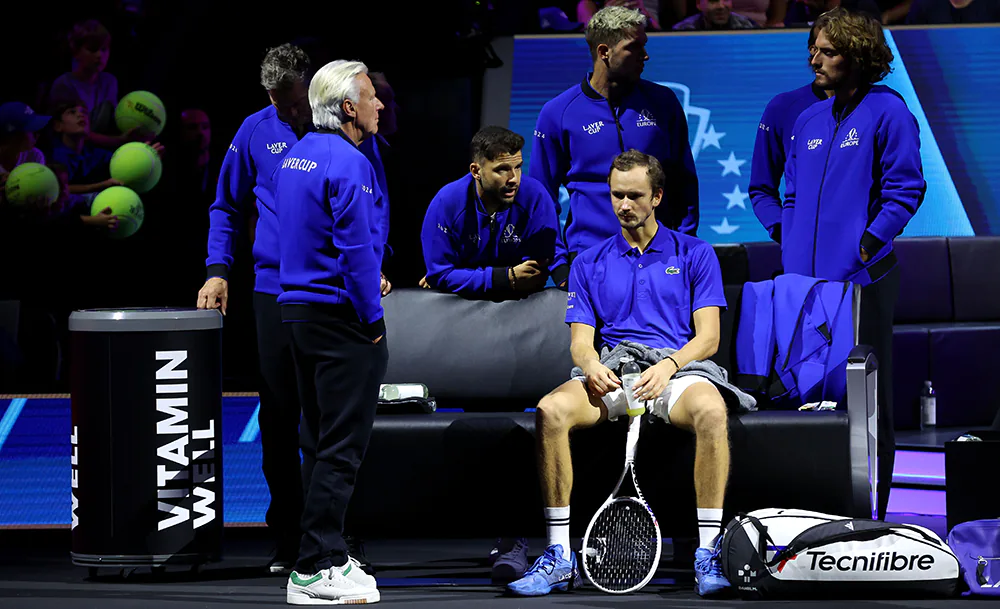In the high-stakes world of professional tennis, players constantly weigh career aspirations against immediate financial gains. This delicate balance was recently highlighted by Daniil Medvedev, the former world No. 1, who made a pragmatic — and arguably courageous — decision to forgo a lucrative exhibition tournament, the “Six Kings Slam” in Saudi Arabia, in favor of an official ATP event in Almaty, Kazakhstan.
The Allure of the Six Kings Slam vs. The Grind of the Tour
The “Six Kings Slam” generated considerable buzz with its reported multi-million dollar appearance fees for an elite roster of players. While some top names embraced the opportunity, Medvedev`s absence stood out. His explanation, however, paints a picture of strategic career management rather than a simple refusal of riches.
Medvedev clarified that the rumored $1.5 million prize money for every participant wasn`t necessarily accurate, and more importantly, he wasn`t among the six players initially invited. “I strongly dropped in the rankings, so, in principle, I understood that I would not be invited there initially,” he stated, referring to the tournament`s tendency to invite the top six players, with rare exceptions for legends like Rafael Nadal.
Having committed to the tournament in Almaty, Medvedev emphasized the importance of keeping his word. “If I sign up, I play. Let’s say, if I agree with someone, I keep my word. That’s why I’m here, and I don’t regret anything.” This commitment extends beyond personal integrity; it’s about the professional imperative to accumulate ranking points and maintain match readiness in official competitions. In a sport where every point can influence a player`s trajectory, such decisions are far from trivial.
Beyond the Baseline: The Player-Umpire Conundrum
Medvedev, known for his intense on-court demeanor and frequent animated exchanges with officials, also offered a refreshingly candid perspective on player-umpire relations. Off-court, he asserts, he holds all umpires in high regard – “they are all cool! I love them all.” But the tennis court, he admits, transforms him.
“Because there are emotions there, somewhere I feel that I probably become more of a footballer than a tennis player. There, when a yellow card is shown, and a person almost broke someone`s leg, he still shouts that there was no foul. It`s roughly the same with me.”
This self-aware, albeit ironic, admission highlights the profound emotional pressure athletes endure in competition. Even when admitting potential fault, the primal instinct to argue a call often overrides rational thought. It’s a fascinating glimpse into the competitive psyche, where the boundary between fair play and fierce advocacy blurs in the heat of the moment.
The Quest for Transparency: A Double-Edged Sword
Despite his on-court theatrics, Medvedev yearns for greater transparency in the rules, particularly regarding time violations. He recounted an incident in Shanghai where he received a warning for delaying play, despite considering himself “the fastest player on his serve in the tour.”
“One time I delayed something there, and I immediately got a warning. And I stand like that every match, waiting for people to be ready to receive my serve. Every match I`m ready to serve and constantly waiting for someone. And then suddenly I get one. That, of course, infuriated me.”
This highlights a common point of contention: the subjective application of rules. While players crave clear, consistent officiating, Medvedev himself acknowledges the inherent difficulty. “Only if there`s transparency in the rules, but on the other hand, it`s hard, because there`s an element of subjectivity. And what if everything changes, and it gets worse? So, nothing is clear there at all.” It’s a conundrum as old as competitive sports – the pursuit of objective fairness in a realm intrinsically shaped by human judgment and evolving circumstances.
A Player of Principle and Pragmatism
Daniil Medvedev`s recent decisions and reflections paint the picture of a player driven by both competitive integrity and pragmatic career planning. His choice to prioritize the ATP tour over a glitzy exhibition underscores a commitment to his professional ranking and the long game of his career. Simultaneously, his frank insights into the emotional battlefield of professional tennis and the complex dance between players and officials offer a rare, unfiltered look into the mind of an elite athlete.
In a sport increasingly influenced by commercial considerations, Medvedev stands as a refreshing voice of reason, reminding us that sometimes, the most valuable currency isn`t money, but momentum, commitment, and perhaps, a healthy dose of self-deprecating humor about one`s on-court persona.

